


With over 100 years' experience in the industry.

We receive only the best dried vine fruit.

Here at Vine Choice we are passionate about providing Dried Fruit because it’s what we love to eat. Whether that’s eating a fruity muffin as a snack, a hot cross bun at Easter or a festive mince pie, we simply love dried fruit and the many ways you can eat it.
Your Requirements




With over 100 years worth of experience in the Dried Fruit Industry, Vine Choice are market leaders in the UK at providing high quality dried fruits. We've got experience from growing fruit to processing it through the factory to delivering it to the end user.
Your Requirements
We’ve spent years cultivating and maturing our farmers into being able to sustainably grow quality fruit year after year. Our dedicated and highly trained quality team work directly with farmers all over the world to ensure we receive only the best dried vine fruit.
We can pack all of our products either in bulk for the Ingredient Industry or we can supply Retail Packs directly destined for supermarket shelves.



Sultanas

Raisins

Currants

Mixed Fruit

Tropical Fruits

Other Fruits

Prunes

Banana

Berries

Apricots

Glacé Fruits

Coconut



Predominantly our main country of origin for sultanas is Turkey. Other origins such as South Africa, China & Uzbekistan are available, although not as widely used in the UK market.
Turkish sultanas are grown in the area surrounding the western city of Izmir and are derived from the same fresh grape as a raisin. The only difference between the two is sultanas are dipped in a potassium carbonate solution to help weaken the skin of the fresh grape which will aid the drying process and help the sultanas to gain the lighter finish customers come to expect. Like raisins, sultanas are openly traded on ‘The Bourse’ and if anything sultanas are the more traded item out of the two.
South African sultanas are generally consumed by the domestic market, although depending on size of crop some exports are made. Grown around the Orange River in the Uppington area, sultanas are exported as Orange River sultanas and are dried in the shade as opposed to direct sunlight like most sultanas.
Chinese sultanas are grown over the vast provinces of Shandong and Xinjaing. With China investing heavily to increase its tonnage of finished material to meet domestic and export demand, we can expect to see competitive pricing for an ever-increasing quality product. Exports of Chinese green sultanas are particularly popular in the ethnic sector.
Uzbekistan is a developing country for sultana export, but political issues have almost stopped any exports from taking place. The quality of fruit on offer is generally good from packer to packer and prices are normally discounted compared to the Turkish equivalent.







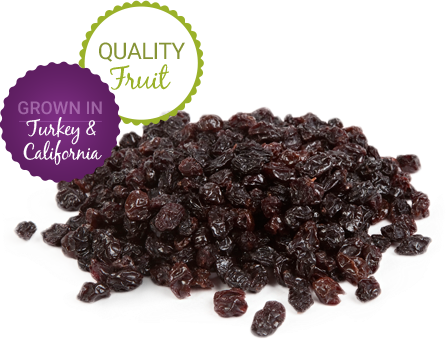

Predominantly our main countries of origin for raisins are Turkey, USA (California), South Africa and Chile. Other origins such as Afghanistan and Argentina are available although not as widely used in the UK market. A large proportion of the raisins sold in the UK are derived from the fresh grape variety known as Thompson Seedless.
Turkish raisins are grown in the area surrounding the western city of Izmir and there are over 20 factories that pack and export fruit. The crop is harvested traditionally at the end of August and beginning of September. Raw material is openly traded at a buyer’s market known as ‘The Bourse’, this is where growers/brokers will bring representative samples of product in hand and offer to packers. The Bourse will traditionally steer the exporters in what price they offer finished material at.
USA raisins are grown in and around the Californian city of Fresno. Traditionally the UK imports Californian Thompson Seedless Raisins or Golden Raisins. Golden Raisins are exposed to SO2 in ovens to obtain and preserve their bright golden colour.
California is the largest growing region of raisins in the world with a yearly tonnage in the region of 300,000 tonnes.
South African raisins are grown in the province of Uppington. The climate and soil surrounding the Orange River is ideal for growing grapes. South Africa mainly exports Golden Raisins to the UK due to their superior quality over other origins of Goldens (Chile & Iran). The Goldens in South Africa are traditionally treated in SO2 whilst drying in metal sheds on the top of hills during the hot drying period.
Chilean raisins are grown in the Los Andes area about 1 hour north of Santiago. The most exported Chilean raisins into the UK is a Jumbo Flame raisin. The Jumbo Flame is known for its very dark deep red/black colour and the large size compared to Thompsons from Turkey or USA. The Jumbo Flame is extremely popular amongst the UK’s cereal manufacturers due to its uniqueness. The Chilean crop is harvested in March.









Our main source of currants is Greece, who are by far the largest producer of currants in the world. They are produced mainly along the northern and western coasts, of the Peloponnese. The UK is the largest export market for Greek currants.
Vostizza currants are grown and produced only on the hills and mountains surrounding Aeghion. Only currants grown and processed in the Aeghion region can be called Vostizza and are certified by the European Union Protected Designation of Origin (PDO No. 1549/98). The microclimate of the region and rich soil contribute to the distinctive texture and flavour of Vostizza.
Gulf currants are grown in the area around the Corinth Canal and this is also a ‘Closed’ region.
Currants produced in other areas of the Peloponnese, including Kalamata, Pirgos and Amalias, are classed as ‘Provincial’ grade.
Whilst Greece remains the dominant source of currants, we can also offer currants from South Africa and USA (California).









We are able to offer dried mixed fruit (with or without peel) in bulk. We can produce an own label range to suit your requirements, please make contact to discuss if this is your first preference.
We are also able to offer bespoke mixtures of dried fruit to include any of the ingredients in our product range. This is available in either bulk, food service or retail options.









Our main source of tropical fruit is Thailand with other origins such as Sri Lanka and China producing a range of products. In Thailand, the majority of factories are based in and around the Bangkok region. Shipments leave via the port of Bangkok which is one the busiest ports in the world.
Fruit is grown in plantations and picked by hand. The fruit is then soaked in cane syrup before being cut into slices or diced. The fruit is then dehydrated in clean hot air compartments before being packed traditionally into 5kg bags which are then packed 4 bags per carton.
The factories in Thailand are of the highest standard and the factories we deal with are BRC, ISO & HACCP accredited. Alongside this, the factories are fully approved by many of the UK’s largest food manufacturers. Factories are dedicated to producing quality material at an affordable price.
The typical dehydrated fruits that are supplied from Thailand include papaya, pineapple, mango, ginger, guava, coconut and cantaloupe. The UK predominantly uses papaya, pineapple and mango in the bakery and cereal manufacturing industry.






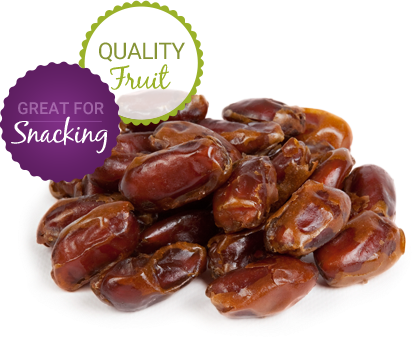

We only import figs from Turkey. Other origins include Greece, Spain and USA. Turkey is currently the largest producing country in the world for dried figs.
Turkish figs are grown around the western city of Aydin with exports coming via the extremely busy port of Izmir. In the Aydin area, there are many packers and processors, believed to be somewhere in the region of 100 companies. A dried Turkish fig comes from the variety Green Fresh Figs.
Turkish figs are harvested in late August and early September, with first shipments not allowed until a specified date which is agreed by the Exporters’ Association and adhered to by all exporters. The first shipment traditionally isn’t made until mid to late September.
Figs are a popular item in the ethnic market in the UK and are widely consumed around Christmas and Ramadan. Widely believed to be a healthy food item, many users like to have figs packed in retail size packs.
Various retail packs can be Garland (circular packs), Layered (rectangular packs) and Pulled (wooden trays). Depending on the required packaging, the figs are carefully shaped by hand in controlled conditions by each packer.
Other tree fruits available include whole pitted dates, chopped dates, apple, peaches and pears.


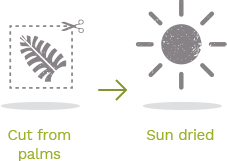





We import prunes from two main countries of origin, Chile and France.
Chile is our main source for conventional prunes which grow predominantly in the Valparaiso and Santiago regions.
The only variety of prune which we purchase is the D’Agen prunes.
Between the main growing regions there are around 115km2 of plum orchards. The biggest risk that this crop faces is the extreme weather conditions which can have a serious impact if encountered in the bloom stage and can still damage the fruit at any point in the growing process.
There is very little domestic consumption of prunes in Chile, the main uses are for hotel catering and public health programmes.
We can offer a variety of different sizes from both origins either pitted or unpitted.










The UK’s main source of banana chips is the Philippines with other origins such as Thailand and Vietnam exporting to various parts of the world.
The variety of banana used for banana chips is called Saba (cooking) and grows in abundance in the tropical climates of Asia.
The island of Mindanao, based in the south of the country, is the Philippines’ largest producing island of banana chips and exports leave via the port of Davao.
The banana is harvested by hand, peeled, sliced and then dipped into a sugar and/or flavouring solution before being fried in coconut oil. It is possible to specify the final product to be sweetened or unsweetened and flavoured or unflavoured to suit the customer’s needs.
Banana chips are widely sold as either Wholes or Quarters. The description of Wholes is used to describe complete circular slices whereas Quarters is used to describe as irregularly broken pieces.
Used as either a snack or ingredient, banana chips are a popular product amongst the UK’s cereal manufacturers and can also be found in many tropical trail or fruit and nut blends.








Our cranberries come from one of three origins: Canada, Chile or USA. The largest producing origin in the world is North America.
Cranberries are traditionally harvested in two ways: dry harvesting or wet harvesting. For dry harvesting, growers use a mechanical picker very similar to a lawnmower. The machine’s metal teeth comb the berries off the vine and deposit them in a sack. Wet harvesting is where the grower floods the dry bog and ‘egg beaters’ loosen the cranberries from the vine; cranberries will then naturally float to the top. They are then collected by a pump and sent to the factory for processing.
USA cranberries are grown across a variety of northern states across America. The largest producing state is Massachusetts which produces over 35% of the world’s cranberries. Other states include Oregon on the west coast, New Jersey and Wisconsin.
Canadian cranberries are almost predominately produced in Quebec where the climate and soil acidity are ideal for the cultivation of cranberries, plus British Columbia.
Chilean cranberries are grown in the Patagonia region and the largest processing plant was purchased by Ocean Spray at the beginning of 2013. Whilst retaining their business as growers, farmers have become part of the cooperative of growers that supply to Ocean Spray.
Blueberries, blackcurrants, strawberries and sour cherries are also available.



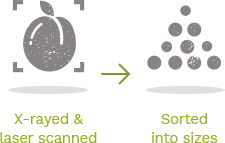





Our main source of apricots is Turkey, with many other origins available through the world ranging from Argentina to China.
The UK predominantly imports Turkish apricots for the baking and snacking industries.
Turkish apricots are grown around the eastern city of Malatya and shipped via the port of Mersin on the Mediterranean Sea. In Malatya, there are thousands of growers ranging in size from those with acres of land down to the individual household that has a single apricot tree in their garden.
Each grower can take their dried apricots to the local Bourse where product is sold to agents representing packers. Prices paid here can affect apricot prices worldwide within hours. In Malatya itself, there are many apricot packers with people from the area dreaming of owning their own factory one day.
Natural apricots are a sun dried apricot that hasn’t been preserved in SO2. The colour of a natural apricot is a natural dark brown and the flavour is sweeter than that of a sulphured apricot. To achieve the golden yellowy colour the consumer associates with apricots, a sun dried apricot is gassed with SO2 in small chambers; this results in different levels of SO2. A natural apricot dries for around 7 days with pitting taking place by hand after about 4 days of drying. A sulphured apricot is pitted after 3 days and then taken for SO2 treatment to preserve the colour.
The Turkish crop is harvested in July and August with shipments not arriving in the UK until early September.










Our main source of glacé fruit is Italy and other origins available include Holland and Greece.
Cherries and mixed peel go through the same process to become glacé fruit. The fruit is placed in a heated sugar syrup solution which absorbs the moisture and will eventually preserve the fruit for days and sometimes weeks.
In this continual process, colouring is added to process depending on the specific customer requirement. Once drained of the syrup solution, the fruit is soaked in a glucose solution and air dried, giving us glacé fruit.
With glacé cherries, there are several different colourings that are imported into the UK. The standard colourings are E127 (bright red) and E163 (dark red/purple).
Mixed peel is generally a combination of orange and lemon peelings, with some variations including citrus peelings and cherries.
The UK market mainly uses mixed peel as an ingredient in mincemeat production and glacé cherries in the bakery sector as an ingredient for cakes.



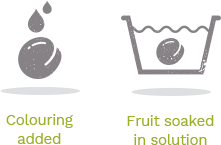





We can supply a wide range of coconut products from various origins including Sri Lanka, Indonesia, Thailand and the Philippines.
Our product range includes Desiccated Coconut, Raw Chip Coconut, Toasted Chip Coconut and Coconut Flour.
The process that a coconut goes through is similar for almost all of the products. The coconut meat is separated from the shell before being soaked in water. From here the coconut is blanched and then grated into various sizes. It is then taken to be dried and then finally sieved and metal detected before final inspection and packing.
From Sri Lanka we currently import Raw Chip and Toasted Chip coconut. The difference between the two different chips is simply the light toasting that turns a Raw Chip into a Toasted Chip. Chips are widely used in the UK for cereal and trail mixes.
Desiccated Coconut is produced widely across Asia with many packers in each country; our main origin is Indonesia. We currently stock Medium, Fine and Extra Fine grades. Desiccated Coconut is used in the UK in a number of ways; a couple of examples of which are to add flavouring to curries and for toppings on cakes.






If you have an enquiry or would like to learn more, please fill out the form with your name, email address and phone number.
Alternatively you could send a letter to:
Customer Services
Vine Choice, 220 Avenue West
Skyline 120 Business Park
Braintree CM77 7AA
© Vine Choice | Orchard Choice 2016